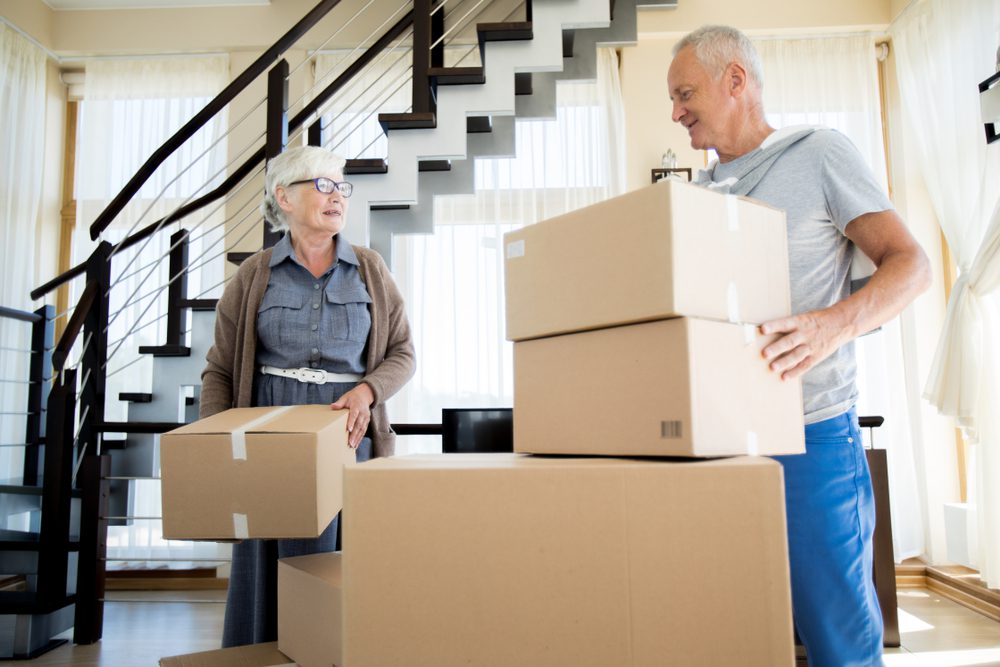
What shouldn’t you put in a safe deposit box?
In this digital world, much of anything that matters is stored virtually in the cloud. This being said, a physical safe deposit box might seem to be a sort of relic of the past. However, don’t underestimate the value of keeping certain valuables securely stowed away in your bank’s vault. (Of course, if your bank has a safe deposit box vault, many are being eliminated.)
Among the things you can and should put in a safe deposit box are prized possessions such as jewelry inherited from a relative and collectible baseball cards. A box like this can also provide critical protection for important documents.
However, a safe deposit box isn’t a wise choice for many things. There are objects you might come to regret putting in your bank, which, by the way, isn’t open nights, holidays, or maybe even weekends.
Experts recommend storing important things that you need to access more often or on short notice in a fireproof house safe that’s bolted to the floor. But what are those items you shouldn’t lock away in a safe deposit box? Let’s find out!

1. Cash
Maybe you’re old-school and like to have a stash of cash at home “just in case.” Or perhaps you got lucky at the casino. Whatever the reason, would storing it in a safe deposit box be a smart move? Experts warn that there are a few reasons why you shouldn’t keep cash in a secured container like this.
For starters, cash money doesn’t make money. Idle cash isn’t able to keep up with inflation, so it will lose buying power. Because of this, it’s better to put the money in a CD or a high-yield savings account.
Also, if you need cash in an emergency and the bank is closed, you’re out of luck. And let’s not forget that some banks expressly forbid keeping cash in a safe deposit box (it’s important to read the fine print of your agreement).
Keep in mind, too, that cash in a secured container located in the vault of a bank isn’t protected by the Federal Deposit Insurance Corporation (FDIC). To get FDIC insurance, which covers up to $250,000 per depositor per insured bank, your cash must be deposited in a qualifying deposit account such as a savings account, certificate of deposit, or checking account.
2. The original copy of your will
It’s a good idea to keep copies of your will, your spouse’s will, and any wills in which you serve as executor safe in a secured container held within a bank vault. However, don’t store the original version of your will there—particularly if you’re the sole owner of the safe deposit box.
Why? After your death, the bank will seal the box until an executor can prove they have the legal right to access it. This could result in long and potentially expensive delays before your will is carried out and your heirs get their inheritances.
Instead, let your attorney keep the original copy of your will or have it somewhere else where your executor can access it without having to go through any formalities. Again, put the copies of your will in a safe deposit box for backup.
3. Your passport
Unless you’re a social media influencer or a global business executive who travels a lot, you probably don’t need your passport at hand 24/7. So it might be tempting to store your precious passport, for security reasons, in a safe deposit box where it won’t get damaged, stolen, or lost. Experts’ advice: Don’t.
A planned vacation is one thing, but emergency trips, by their nature, are unexpected and inevitably occur during non-banking hours. A parent suffering an accident while on an international cruise or a child getting sick while studying abroad could cause a last-minute rush to leave the country.
Or this: You get lucky and find a wonderful deal on a last-minute trip to Europe. It’s after 6 p.m. on a Friday, the flight is Sunday, and your bank doesn’t reopen until Monday. Basically, you’re out of luck if your passport is stored there in a safe deposit box. It’s best to have it secured in a home safe (here are some of the best options Amazon has).
4. Your final letters of instruction
Letters of instruction are extremely important for your estate. Having a letter of instruction to go along with your will is a wise estate-planning move. The letter can highlight such things as wishes for medical care or, when you pass away, whether you want to be burried or cremated, and what type of memorial service, if any, you’d wish to have.
All these details are up to you. A letter of instruction can also include details on specific bequests—sister Mary gets your fancy artwork, cousin Jim gets your great-grandmother’s ring you inherited, and so on.
But if your letter of instruction is kept inside a safe deposit box that no one but you has access to, then your final wishes might not be granted. That’s why experts recommend not keeping the letter of instruction in a safe deposit box. Instead, send dated copies of the letter to anyone who’s designated to get a specific bequest.

5. Your durable power of attorney (POA)
You don’t even have to pass away to run into trouble storing documents in a safe deposit box. Let’s say you’ve been diligent in ensuring that the vital documents in your life are signed, sealed, and delivered.
Among those documents is a durable power of attorney (POA), which offers authority to a third party to make decisions on your behalf should you become incapacitated or somehow unable to deal with your legal and financial affairs.
However, if that POA is stored in a safe deposit box that no one but you has access to, then the person you’re counting on to help you at your time of need could find their hands tied. Make sure you keep the original POA, along with the original copy of your will, and give copies to those who may one day need them.
6. Uninsured jewelry and collectibles
The wedding band from your first marriage, heirloom jewelry from the grandparents, rare coins, and similar valuable objects are good candidates for a safe deposit box, but only if they are properly insured.
The FDIC doesn’t insure the items kept in a safe deposit box, nor does the bank itself unless otherwise stipulated in your agreement. Because of that, experts advise box owners to get an appropriate policy from the insurance company of their choice.
And there’s something unsettling when you know that there have been noteworthy disappearances from safe deposit banks, particularly after banks change owners, sometimes multiple times.
For example, one owner of a secured container had a nerve-racking experience when he opened a bank box he had had for years, storing a collection of valuable watches. One day, poof, they were gone.
As journalists noted in multiple coverages of that loss, there are no federal laws protecting the boxes and their contents; no rules require banks to compensate clients if their property is destroyed or stolen.
Standard homeowners insurance provides some coverage for personal property stored off-premises, but limits are usually low for valuables such as collectibles and jewelry. One option is to talk to your insurer to see if the limits can be raised.
You can also consider what’s called a personal article floater; this is a supplemental policy that offers extra coverage for specified valuables. Chances are you’ll need to get the objects “scheduled,” which means providing written appraisals and/or original receipts.
It’s a smart move to keep appraisals up-to-date for objects that fluctuate widely in value. Make sure to take photos, too, in the event that you ever need to file a claim.
7. Advance directives for health care
Two documents are vitally important when it comes to your health and estate planning: a health care proxy and a living will. These documents are often referred to collectively as advance directives, but each has a unique purpose.
A health care proxy, also called a health care power of attorney, designates a person to make medical decisions for you in case you can’t make them for yourself.
A living will states your wishes for end-of-life care. Do you want to be resuscitated if your heart stops? Do you want a feeding tube or a ventilator to keep you alive? Without a living will, doctors are compelled to take extraordinary (and maybe unwanted) steps to save you.
Neither document will do you much good stowed away in an inaccessible, secured container. Make sure your family members, medical providers, and healthcare team have copies on hand.

8. Spare keys
A spare key is one of the worst items to keep in your wallet. If your wallet is ever stolen or lost, the key along with the address on your driver’s license is basically an open invitation to intruders to ransack your house.
Storing a spare house key in a safe deposit box is also an awful idea, albeit for different reasons. Just think about it: You can only access your secured container during normal banking hours—and only if you have the key to the box with you. If you’re like most people, the key to your safe deposit box is stashed away somewhere inside your house… from which you’re currently locked out.
Save yourself the trouble and leave the spare key with a nearby relative or a trusted neighbor.
9. Liquids and dangerous or illegal items
Your bank will likely have a list of items that aren’t allowed to be stored in a safe deposit box. Make sure you read this list. Weapons, including firearms, generally aren’t permissible, nor are explosives. The same goes for hazardous materials and illicit drugs. Figure anything dangerous or illegal is off limits, and really: Why would you keep that to a financial institution in the first place?
Use common sense, but keep in mind that different banks may have different rules, so pay attention to all the details when reading the fine print of your safe’s secured container agreement.
Many, if not all, don’t allow liquids of any type to be kept in your safe deposit box, so that old bottle of rare whiskey should stay at home. Where it belongs. In a glass.
If you are still unsure about what cannot be stored in a safe deposit box, ask your banker for clarification.
If you liked our article, you may also want to read 7 Important Tax Documents To Never Throw Away.









